Queer Writers Are Building Canon Everywhere
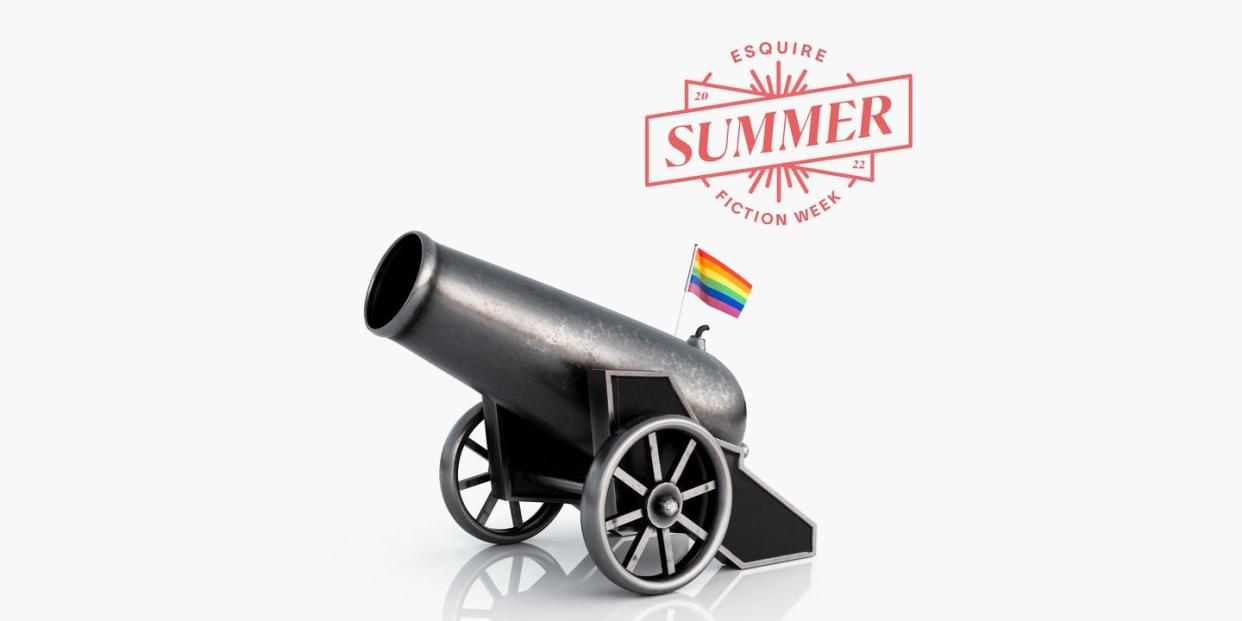
- Oops!Something went wrong.Please try again later.
- Oops!Something went wrong.Please try again later.

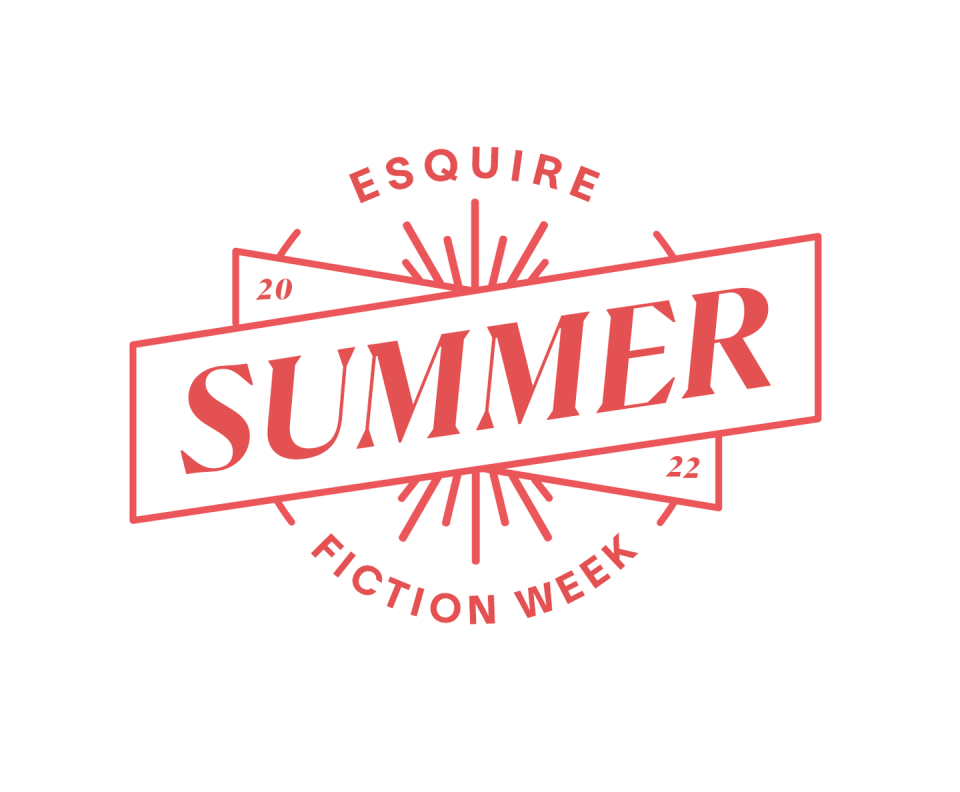
The recent introduction of legislation attacking LGBTQ rights, including hundreds of bills seeking to criminalize medical care and restrict participation in sports, raises real concerns about the direction of protections for queer (and specifically trans) people in the United States. Because fiction can so powerfully create portals to experience and perspective, queer writers who grew up in rural areas of red states are penning unique stories on what it means—as well as what it could mean—to be queer in America today.
Queer writers are building canon everywhere. I spoke with five such authors—Carter Sickels, Garrard Conley, Kristen Arnett, Brandon Taylor, and Nick White—who grew up in politically red areas in different states, all among a conservatism that took different forms. They each possess distinct vision on and off the page, often set in, informed by, and in conversation with the places that shaped them. Taken together, these authors’ books glimpse the queer rural experience, a somewhat plain-sounding phrase that belies the marvelously kaleidoscopic expansiveness it holds. What connection do these writers feel to the rural and conservative areas in which they grew up? How have they, and how has their work, been shaped by the atmosphere, the elements and degrees of remove, the culture—beyond the simpling (and false) reduction of red states and rural areas as queer-less spaces? I wanted to know what if any duty they feel to the regions that formed them. In that spirit, I asked for recommendations of community organizations or bookstores from their home state that they want to spotlight.
Growing up queer in a conservative home in rural New Hampshire, it was hard to imagine a life free of hatred couched in doctrine, barked out over the radio—for me, fiction became one way of inflecting that same landscape with the hope of self-liberation. While speaking with each of these writers, I was taken by their love for the places they grew up. A large part of a loving rendering, for them, is the illumination of the dark shadows behind bigotry and closed-mindedness—things that can mark one aspect of the rich experience of queer life. Beyond survival, though, these authors are interested in queer joy—the inherent and empowering joy of queer community.
The growing canon of queer literature possesses a power like prayer, sacred and incantatory. We believe in the redemptive power of story to acknowledge the complexity of queer lives. We remember our roots, and we honor our duty as writers of fiction to create worlds with each other in them.
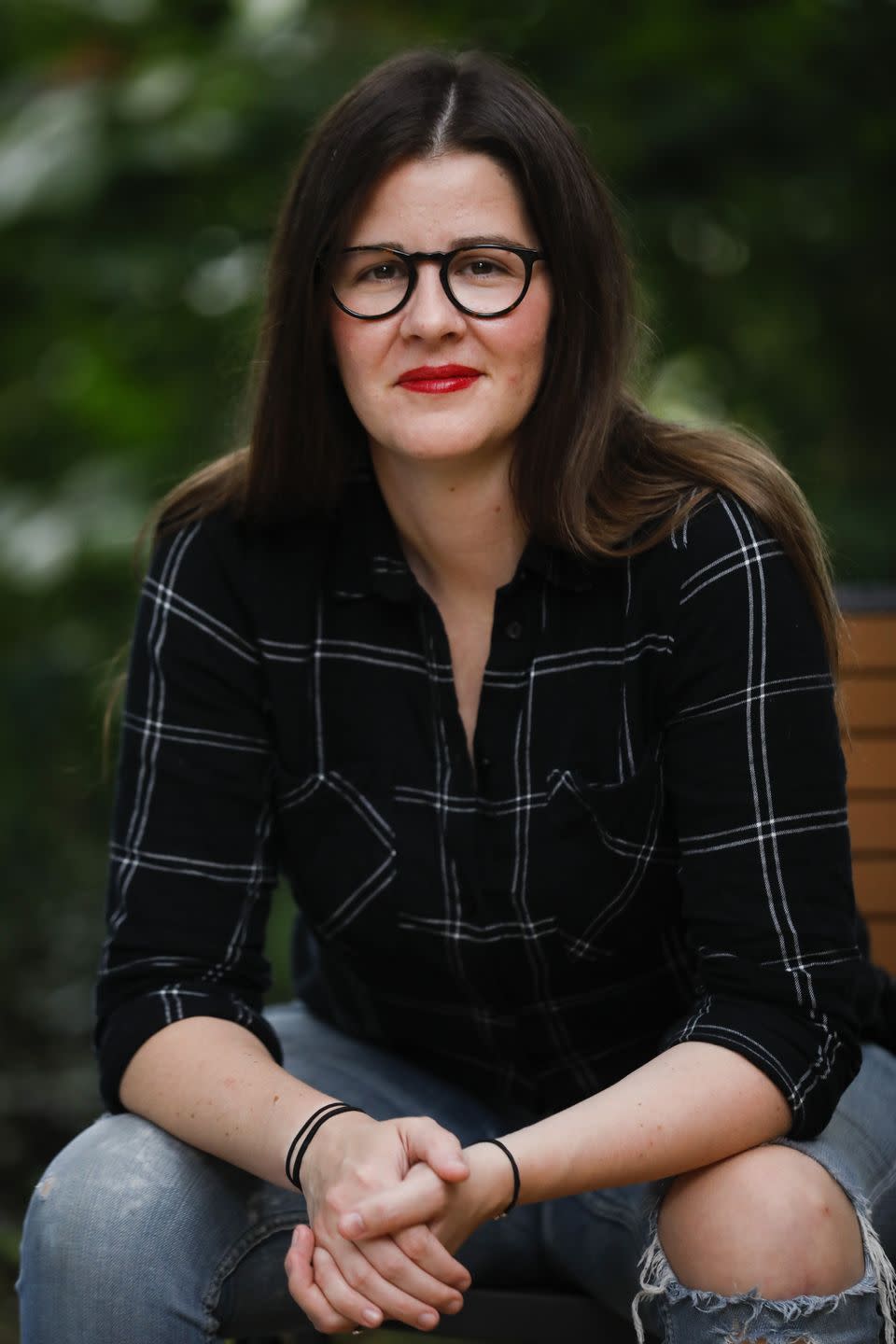
Kristen Arnett
“Florida is an unlikable character,” Kristen Arnett says. “It refuses to be ignored. And if I can take the Florida out of a story, that’s usually not a story I want to write anymore. Florida has a messy aliveness.”
In muggy central Florida, Arnett started writing stories based on Barbies and The Babysitter’s Club on the back of church bulletins. “But if anybody asked me what that was,” she says, “I would have just thought of it as some goofy thing.” Growing up among a pervasive conservatism, she had to close and segment parts of herself, and listen to FOX News in the background while visiting family. (This is crushing me, she remembers feeling.) Writing and storytelling became an intricate way to address it all on the page.
The “goofy thing” stuck, and many bulletins later, Arnett’s writing practice transformed. She read Flannery O’Connor and Dorothy Allison, and became transfixed by their conjurings of a familiar grotesqueness and wildness she recognized in the Florida atmosphere—and later would reflect in her indelibly, messily alive queer fiction. Her debut novel Mostly Dead Things, set in Florida, asks profound questions about the complexity of reconciling queerness and family through the metaphor of taxidermy. The practice is something of a fixture of Florida culture. “Wildlife winds up in your space, because it’s their space,” Arnett says. “And there’s a lot of death in that mix.”
For Arnett, the latest politics of the state give the sense that she’s been transported back to her childhood. “Everybody gets this snapshot of what Florida is like—the developments that happen weekly, sometimes daily,” she says. “But at the same time, you still get up in the morning, make a pot of coffee, and get groceries. It feels weird that these things exist simultaneously. If you’re not actively engaging, you can trick yourself into thinking ‘This isn’t actually touching me.’” It’s this very paradox that can energize Arnett’s desire to write about complex domesticity; in her fiction, queer characters grapple with a day-to-day that’s been in some ways shifted by these larger, sometimes more abstract concerns. Arnett doesn’t shy away from writing thorny, even mean queer characters, as she does in With Teeth, her latest novel. But their rendering is always human. Her characters inhabit stories that are often undeniably, proudly Floridian, and that move deeply, wading into tranquil water that somewhere contains rows of sharp teeth.
She’s moving back to Central Florida soon, from more south in the state. “I want to build,” she says, with the tone of someone already working out their plans how.
Kristen Arnett recommends Orlando-based Zebra Coalition: “As a person who grew up closeted in Orlando, Zebra Coalition—an organization that provides necessary, crucial resources to LGBTQ+ youth in the Central Florida area—is very dear to my heart.”
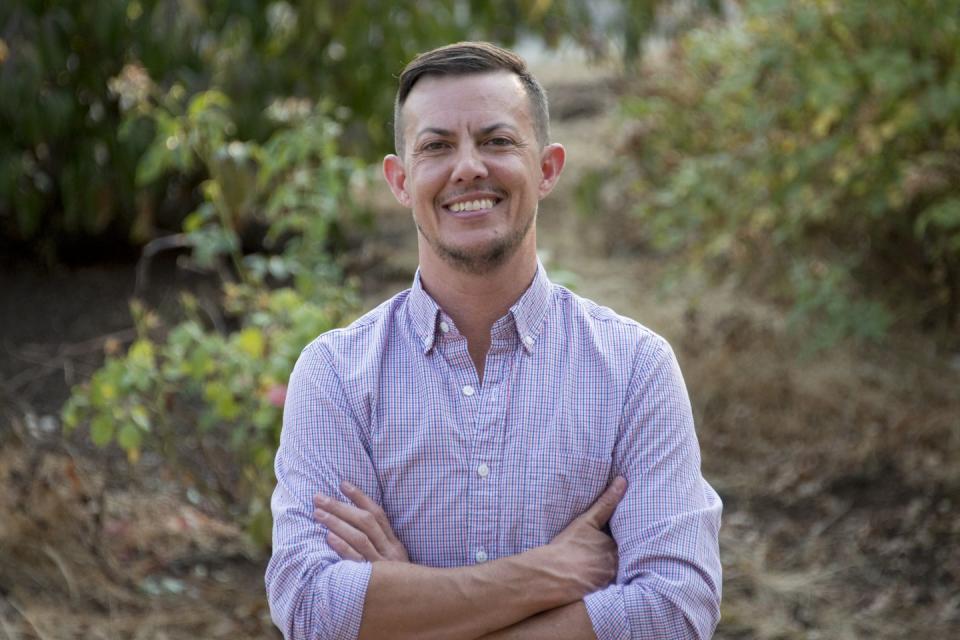
Carter Sickels
“There was a homesickness for the natural world,” Carter Sickels says of the decision to set his queer fiction in Appalachia.
Sickels grew up in rural central Ohio and had the shy, bookish childhood you might expect of a now-accomplished fiction writer. But voracious reading didn’t initially introduce him to the queerness he would claim and render years later in his powerful novels, The Evening Hour and The Prettiest Star. After coming of age during the AIDS crisis in the 80s, Sickels knew he wanted to craft stories in opposition to the derided distortions and reductions of queer people that he saw on television, or heard whispered about in churches and schools. He wanted to write complicated and whole queer characters, living in rural Appalachia, connected to the spirituality of a beloved place—a place with some of the oldest forests on earth, and synonymous with home.
Sickels began writing his rural debut The Evening Hour in the early 2000s, after leaving for graduate school and then decamping to New York. In the city, he found his story returning to familiar Ohio. The backdrop grew jagged, however, when he learned about mountaintop removal in West Virginia. The blasting technique was a cost-effective coal extraction method that required fewer people than mining, exploding hundreds of feet of rock to expose prized coal. It was a practice that became popular under Bush, but it quickly decimated many West Virginian communities, leaking toxic chemicals into the water and air. Sickels paid homage to this simultaneously devastated and hallowed setting through his protagonist, Cole, a young man struggling with a repressed queerness.
“The question I was grappling with was what it would look like to stay,” Sickels says. “I wanted to write about what rural queerness looked like in this place that could be so beautiful and sensitive.” His latest novel, The Prettiest Star, is set even nearer to the place he grew up in southeast Ohio. “Of course, queer people are living and thriving in these spaces. But it sometimes feels like this paradox: I love this space, but this space doesn’t love me back.”
In light of so much anti-trans legislation, Sickels underlines the importance of complex fiction about queerness and transness. “It does feel urgent to write these stories,” he says. “We have such history, and ancestors. There are so many trans and queer people who came before us who resisted and fought back and found joy. It’s important to see possibilities.” He feels that now, he has a responsibility to be out as queer and trans.
There’s real beauty to Sickels’ reclamation of queer Appalachia on the page. The political urgency of his fiction is enriched by the natural wonder and peace of the place to which he feels such connection. As he says, visibility as an out queer and trans man “creates opportunities for community, and for reflection.” Sickels’s resonant, clear prose and rich storytelling call to mind a pristine mountain lake, its surface perfectly still. Look at who you are.
Sickels recommends Equality Ohio: “The work that Equality Ohio is doing is vital and matters immensely to me. They’re fighting to stop the horrific anti-trans and anti-queer legislation in Ohio, and they're the only organization in the state dedicated entirely to advocating for and protecting the civil rights of trans and queer people.”
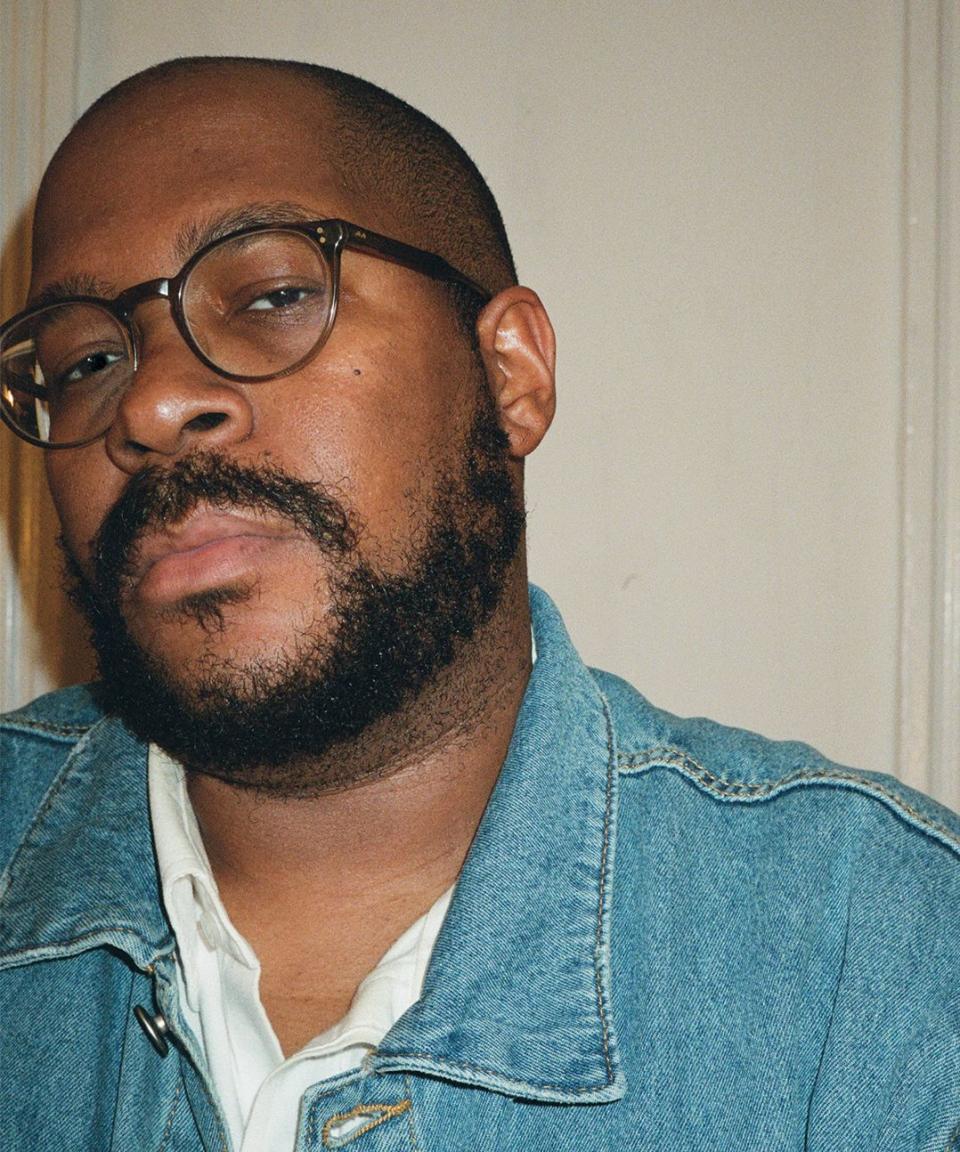
Brandon Taylor
“There are as many Souths as there are people living there,” Brandon Taylor says. “The South is a very romantic place; it has very romantic notions about itself.”
In a small community on the outskirts of Prattville, Alabama, Taylor grew up reading his aunt’s romance novel paperbacks, cutting firewood, and hunting deer, turkey, and rabbit. He was surrounded by family and relatives, and describes himself as something of an oddball among them. In the tenth grade, he read Pat Conroy’s The Prince of Tides, a “messy, complicated southern novel” that’s remained a favorite—one he cites as an influence alongside the power and lushness of prose by Saul Bellow, John Updike, Andre Aciman, William Faulkner, and the lyric register of the Bible. (One gets the sense, speaking with Taylor, that he is intimidatingly well-read.)
But in college, he wasn’t sure how to approach writing a story for his first creative writing course. His friends brought him to a nearby bookstore to look for a queer novel—something that might reflect experience, and instruct in the effort. When Taylor asked for a queer title, he was told, “We don’t sell that here. We’re a family bookstore.” That was the impetus for his first gay short story.
Taylor’s investment in crafting his own fiction grew, and after studying biochemistry in a graduate program in Madison, Wisconsin, it eventually brought him to the Iowa Writers’ Workshop. With his debut novel Real Life, Taylor wanted to write a story in the campus novel genre, but one in which he didn’t have to translate his own experience into a character unlike himself. Nothing would be transposed on or filtered unnaturally through. The starting point was him, and the experiences of those friends from college in Alabama—writing stories that would make Blackness and queerness not merely visible, but centered on the page. The care taken on the sentence level is simply marvelous, featuring moments often shocking in their candor. Taylor writes with dynamism and insight, and his characters often grapple with poignant questions of belonging and agency.
“I write about the Midwest because I am quintessentially an outsider there,” Taylor says. “For most of my life, I was desperate to leave the south. I thought, I’m finally going to be with my real people. And the minute I got to the north, I was like, get me out of here. I didn’t understand Alabama to be a red state until I left. Moving to the Midwest was when I encountered racism of a kind I’d never experienced.”
Taylor emphasizes the importance of not making assumptions about queer rurality, and the power of story to provide nuance and perspective. “I think it’s so important that we honor the difficulties and challenges—it’s not easy—but also that we don’t overly stigmatize or problematize or just presume that everyone has moved to New York,” he says. “These lives are worth talking about and telling stories about. They are worthy subjects of art and discourse.”
One of those friends from college called him up after Real Life was announced as a finalist for the Booker Prize. It was an emotional, full-circle conversation. “Our lives are taken seriously. They’re handled with care,” his friend told him about his work on the page. “You did it.”
Taylor visited a friend in Alabama several years ago, before his debut’s release, and in that same bookstore from his college days saw a queer novel by his Writers’ Workshop classmate, Joseph Cassara: The House of Impossible Beauties. In the window, fiction section. Face out.
Taylor recommends Birmingham-based Thank You Books: “Independent bookstores are more important than ever, particularly as we witness renewed attacks on self-expression and truth-telling. A bookstore can be the core of a community, and a safe haven for people to find affirmation and just a sense of security. Thank You Books is the kind of bookstore that I wish I'd had in my own community growing up in rural Alabama. Supporting an independent bookstore is like taking a personal stake in the kind of community and future you want to see and be a part of."
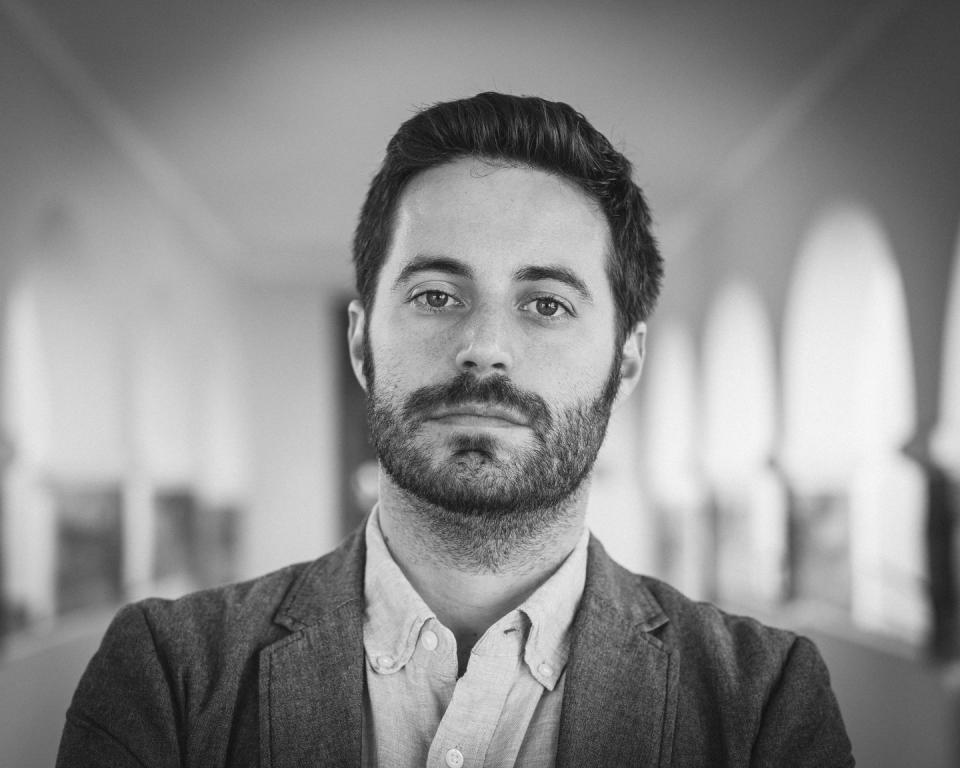
Garrard Conley
“It was so insular to me, the world that I grew up in,” Garrard Conley remembers thinking. “It was the air. Why would you even talk about it?”
Long before the cultural sensation of Boy Erased, the artful and harrowing memoir detailing his time in conversion therapy, Conley was queering stories. At ten years old, in conservative Mississippi-Delta Arkansas, he started writing myths on the chunky family monitor. Think gay boy Persephone, trapped in the Underworld, waking up in satin pajamas. Files upon files. His parents predicted he’d be a writer at nine years old.
This love of storytelling grew up with him. Just before he began the now widely discredited conversion therapy program Love in Action, Conley won his college’s freshman year writing award. Shortly following that recognition, while undergoing “treatment” for his sexuality, a young counselor at the program made him toss his notebooks and stories. (Anything that could be seen as False Image, including writing, was deemed a liability.) “At the time, I just didn’t understand what was going on,” Conley says. “But later I understood that really altered the way I wrote.” He began to pen “legible, straight characters” who, with traits so predetermined, never quite rang true.
Writing the memoir and recounting the events of his adolescence brought up unexpected insights. “I was surprised constantly by the beauty I found,” Conley says. “It was a solace to me, to think of nature as imbued with God’s glory. That came across in the book itself, and I was surprised by that.” He found beauty, and pride too, in broken family cycles previously perpetuated by a conservatism and religion that seemed to thrive in the relative isolation of his hometown.
While touring Boy Erased across the world, Conley continued to gain perspective on his childhood, and on Arkansas. “A lot of the south is strangely indecipherable to urban areas,” he says. “It’s been surreal trying to watch the world grapple with the place I grew up, often in very condescending tones. It’s easy to think, everyone here thinks the same.” But on his last visit home, a movie theater cashier ringing up his popcorn thanked him for his work and reminded him of his impact. “The magnet comes to me,” he says. “It’s so healing to see that version of the south. Knoxville, Memphis, Little Rock. Pockets of queerness and wonderfulness.” It means something different, community-building in the face of adversity in rural spaces. “That’s what we come from; that’s our history. And we’re very, very good at it.”
The inspiration still finds him in new ways. Several years ago, Conley encountered minister Johnathan Edwards’ sermon “Sinners in the Hands of an Angry God” in his father’s office—which sparked work on a novel that asks powerful questions about the roots of religious zealotry. “Very fire and brimstone,” he says of the sermon, “very effective.” He found himself taken with the prose and the complicated man behind it. Though Conley is most known for writing dimensional memoir, his fiction is poised to make similarly serious contributions.
There is only a brief pause before Conley, asked about what he’d offer queer youth struggling in these areas, says, “You’re never actually isolated. Happy queer existence can feel like a fairy tale. Far off, and impossible to reach. But it’s important to know that it is real; it has always existed. We will always find each other.” It feels right that he’s now living out a kind of myth—a story that positions him to encourage other misunderstood queer youth to hang on, and to write their own.
Conley recommends Little Rock-based Lucie’s Place: “Lucie's Place has been an oasis for queer folks in Arkansas, a truly one-of-a-kind organization. Their commitment to helping end TLGBQ+ homelessness in the state has been consistently awe-inspiring.”
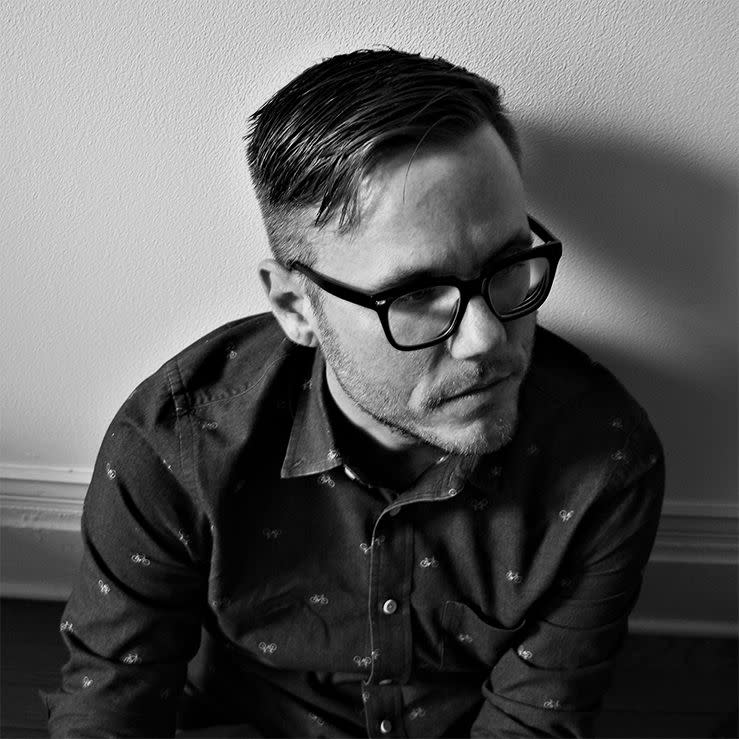
Nick White
Growing up in Possumneck, Mississippi, Nick White didn’t know of any queer people. “I felt there was no way I could be gay,” he says.
This was a feeling that pervaded White’s adolescence, even as it became harder to hide his queerness from himself. His father sold four wheelers; he’d camp out, and do donuts in the sandbar of a nearby river. “I loved being there,” White said. In high school, when TV Land did an entire weekend marathon of Maude, he faked sick from a “paintball church function” to watch it, which inspired him to write a handwritten fan letter to Bea Arthur. Two weeks later, an autographed photo arrived in the mail. “A queer totem,” he says. It’s now framed, and was on the wall behind him when he came out to his parents at thirty years old, just shy of his debut novel’s release.
That novel, How to Survive a Summer, is the textured, moving story of a graduate student confronting his traumatic past, largely at a conversion camp. It’s streaked with the influence of the horror films White binged growing up. “Good horror explores secrets,” he says. “Especially the slasher flick—there’s this idea of outrunning the past. Friday the 13th, forgetting someone drowned. Forgetting the past, not reckoning with it, and reaching a place where you can’t outrun it anymore.” He was so deep in the closet, he says, that had he been outed or outed himself at fourteen or fifteen, he “would have probably insisted” that his parents send him to ‘conversion therapy.’
White started working on the novel as a kind of alternative history for himself. The revenge fantasy horror trope felt like a fresh way to engage the controversial topic. It was shocking to him, so many years later, that he’d ever possessed this degree of internalized homophobia.
But White’s experience growing up in Mississippi didn’t flatten to something patly horrific, and neither does his novel. “There’s the idea that being ‘in the middle of nowhere’ can be constraining and limiting,” he says. “But I also see it as a place of possibility.” His next novel runs with this promise, reimagining the Mississippi woods as the setting of a queer paradise. There’s something fitting about an alternative history arriving as part of a pair.
White was recently a panelist at something resembling a real life queer paradise: the Glitterary Festival, a queer bookfest held in Oxford, Mississippi. There, a room full of writers sang him happy birthday. “I was so grateful for that moment,” White says; he couldn’t have imagined this would be his life. Twenty-four hours later, his mom and dad came and picked him up, and they went back to Possumneck, where he mounted an old four-wheeler, mud riding with his cousins in those old woods.
White recommends Water Valley-based Violet Valley Bookstore: “Run by the great and good Jaime Harker, this bookstore provides queer texts to queer Southerners. Is there anything more radical, more nourishing, more impactful than having a bookstore that not only recognizes and affirms your existence, but actively caters to it?”
You Might Also Like

